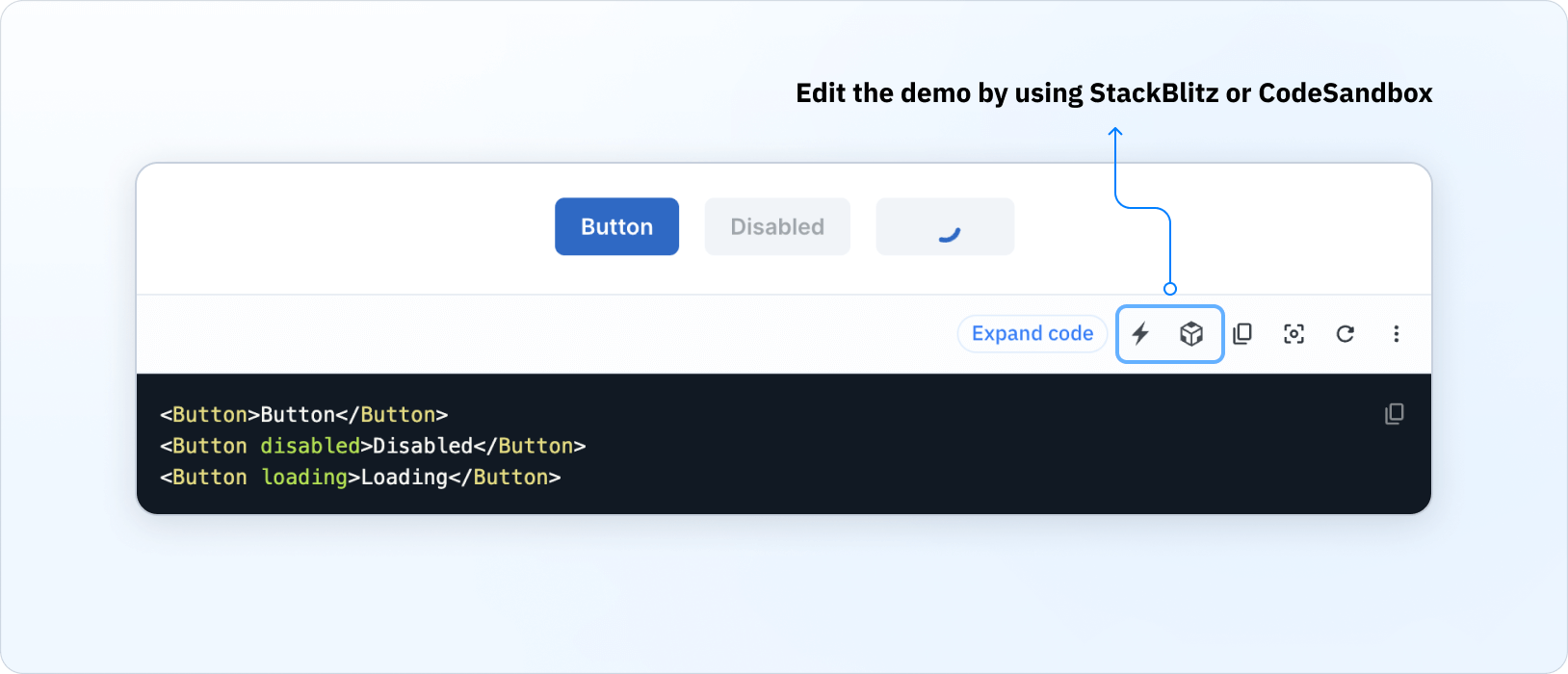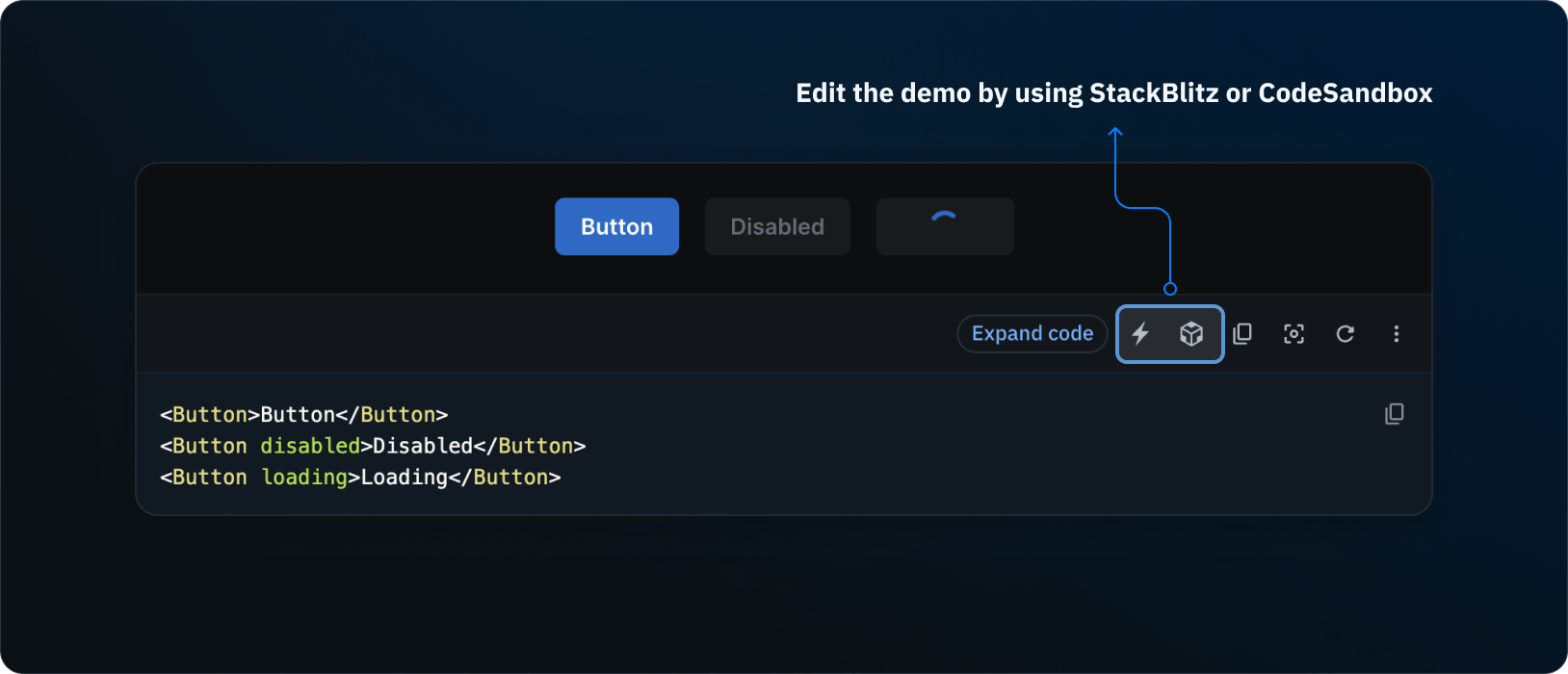Support
Learn how to get support for MUI System components, including feature requests, bug fixes, and technical support from the team.
GitHub
We use GitHub issues as a bug and feature request tracker.
If you think you've found a bug, or you have a new feature idea:
- Please start by making sure it hasn't already been reported or fixed. You can search through existing issues and pull requests to see if someone has reported one similar to yours.
- Then, if no duplicates exist, open an issue in the MUI System repository.
New issue guidelines
- Please follow one the issue templates provided on GitHub.
- Please begin the title with "[component-name]" (if relevant), and use a succinct description that helps others find similar issues.
- ❌ "It doesn't work"
- ✅ "[button] Add support for {{new feature}}"
- Please don't group multiple topics in one issue.
- Please don't comment "+1" on an issue. It spams the maintainers and doesn't help move the issue forward. Use GitHub reactions instead (👍).
Bug reproductions
We require bug reports to be accompanied by a minimal reproduction. It significantly increases the odds of fixing the problem. You have a few possible options to provide it:
Use the live editors
You can browse the documentation, find an example close to your use case, and then open it in a live editor:


Use starter templates
You can use a starter React template to build a reproduction case with JavaScript or TypeScript.
Stack Overflow
We use Stack Overflow for how-to questions. Answers are crowdsourced from expert developers in the MUI System community as well as MUI System maintainers.
You can search through existing questions and answers to see if someone has asked a similar question using the mui-system tags:
If you can't find your answer, ask a new question using the relevant tags.
Technical support
We do not offer paid support for Core libraries like MUI System.
But you might want to read the technical support offered on MUI X components.
Long-term support (LTS)
Bug fixes, performance enhancements, and other improvements are delivered in new releases. However, we remain committed to providing security updates and addressing regressions for the immediate predecessor of the current major version.
This includes issues introduced by external sources, like browser upgrades or changes to upstream dependencies.
Supported versions
- MUI System v5: ✅ Stable major (Continuous support)
- MUI System v4: ⚠️ Long-term support (Guaranteed Support for security issues and regressions).
- MUI System v3: 🅧 No longer supported.
- MUI System v2: 🅧 Never existed.
- MUI System v1: 🅧 No longer supported.
- MUI System v0.x: 🅧 Never existed.
Community
Social media
The MUI System community is active on both X/Twitter and LinkedIn. These are great platforms to share what you're working on and connect with other developers.
Discord
We have a Discord Server to bring the MUI System community together. Our tools are used by thousands of developers and teams all around the world, many of whom actively engage with the community.
You can join Discord to engage in lively discussions, share your projects, and interact with developers just like you from all around the world. We'd love for you to join us!
Custom work
If your team gets stuck and needs help getting unblocked, MUI System's engineers may be available on a contract basis.
Keep in mind that the work must be directly related to MUI System's products—we don't accept general web development or React work.
Our contracting price starts at $200/hour or $1,500/day.
Send us an email summarizing of your needs, and we'll let you know whether we can help (or else try to suggest alternatives).
Tidelift subscription
We and the maintainers of thousands of other packages work with Tidelift to deliver one enterprise subscription that covers all of the open-source you use.
If you want the flexibility of open-source and the confidence of commercial-grade software, this is worth looking at. The Tidelift Subscription manages your dependencies for you.
The end result? All of the capabilities you expect from commercial-grade software, for the full breadth of open-source you use. That means less time grappling with esoteric open-source trivia, and more time building your own applications—and your business.